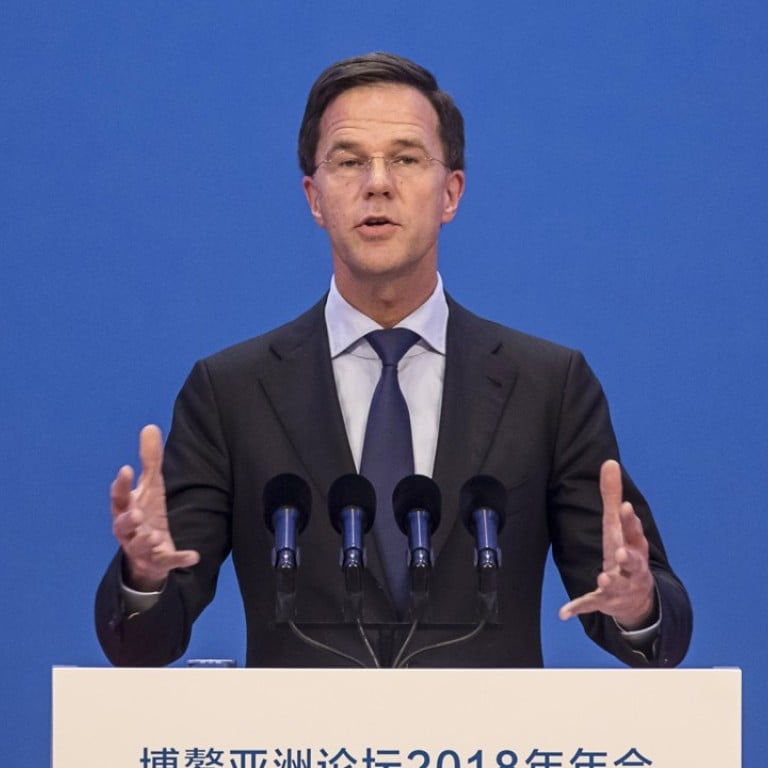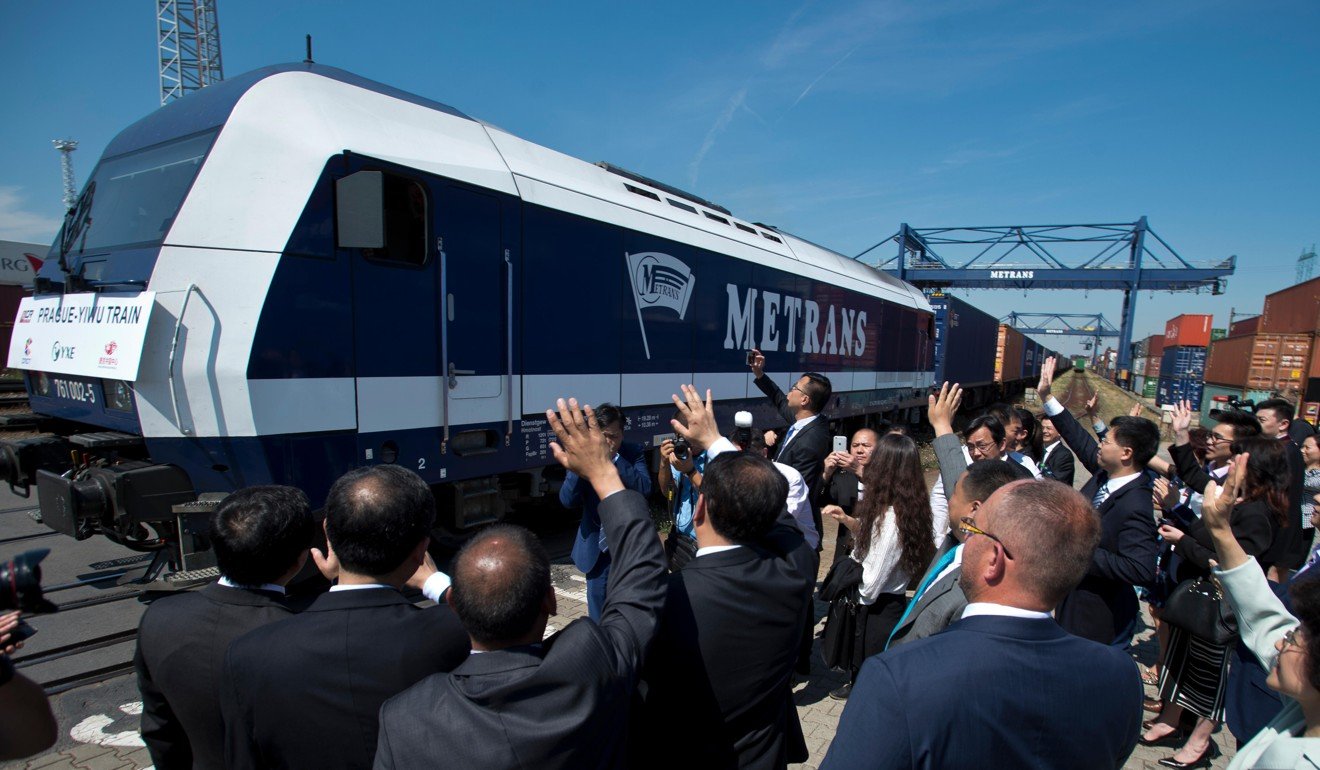
Exclusive | Netherlands keen on Chinese investment but wants belt and road to benefit foreign companies
Dutch Prime Minister Mark Rutte sees China’s ‘Belt and Road Initiative’ as an opportunity while suggesting more open tendering before meeting Li Keqiang
The Netherlands has grown more interested in Chinese investment but remains cautious about the openness and transparency of the new Silk Road, Dutch Prime Minister Mark Rutte has said.
“We are looking at whether China is doing most of the work or if there is need for companies from outside China to help,” he said on Monday. “I would like to influence that if possible.
“The overall quality will increase if there are companies from outside China participating on a large scale. There are many companies from the Netherlands who would love to participate.”
To date, no western European countries have partnered with China on its initiative, intended to expand connectivity in the Eurasian region by building infrastructure and trade routes. Britain, France and Germany have expressed scepticism about China’s political objectives for the project.
The sixth-largest economy by GDP in the European Union, the Netherlands appears less wary of China’s influence in Europe than its western European counterparts.
“In more general terms, approaching the ‘Belt and Road Initiative’ as a problem is not helping,” Rutte said.

Rutte welcomed the weekly goods train connection with China, which opened in March, linking Yiwu outside Shanghai to Amsterdam’s Amerikahaven port in 16 days. The railway forms part of an 11,000km route between China and Europe through Mongolia and Russia.
Despite saying the rail link was the start of further economic cooperation with China, Rutte urged China to adopt “international standards” in its trade relations under its belt and road plan.
Chinese media reported in January that there would be new international courts established within China to handle disputes related to the plan, but Rutte said China could consider using the dispute settlement mechanisms of the World Trade Organisation and other international channels.
“I would very much hope that [China] makes use of the existing [international mechanisms],” he said.
Rutte has not been alone in Europe in calling for transparency, with German Chancellor Angela Merkel warning China in February to keep investments in the Balkan states free from political demands.
A US$3 billion investment fund and US$10 billion credit line for eastern and central Europe were promised in 2014 as part of belt and road projects. The funding has backed infrastructure and energy projects including an airport in Bulgaria, two nuclear reactors in Romania and a railway line between Serbia and Hungary.
“I understand where my colleague [Merkel] was coming from,” Rutte said, “but I am not too worried, particularly on the Balkans.”
The Dutch premier said the EU’s economic ties with central and eastern European countries meant China’s relations with those countries were no cause for concern, but he felt the EU should take the lead in deciding on a unified approach to the belt and road plan.
“Some eastern European countries are very keen to jump on the bandwagon, which they are perfectly entitled to do, but on the other hand we will also be able to come up with a joint European strategy that is also in the interests of these eastern European countries,” he said.
Rutte said he expected a consensus within the EU to be reached as early as this month. A collective plan would benefit the whole of Europe, he said, “because we can have an integrated strategy of how we can make maximum use of this initiative”.

